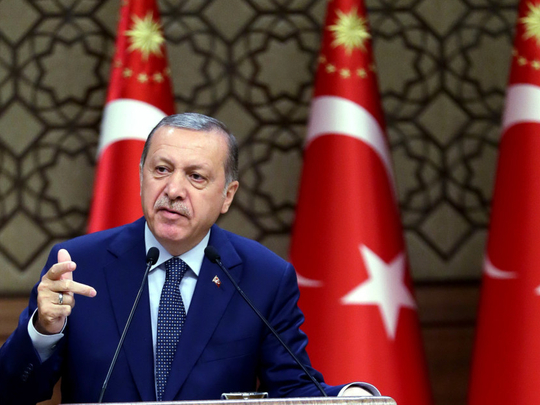
What’s wrong with this planet? Last’s week edition of Italian daily Corriere della Sera showed a man walking on a world map, shrieking “I want to get off!” Humans, however, have to pay the price for their distractions. Three apparently unrelated events illustrate this.
In the United Kingdom, it seems Piccadilly is not the only circus. One just has to observe the so-called Brexit winners who resigned soon after the European Union referendum — those who voted for Brexit but felt mighty embarrassed soon thereafter as they realised they did not have a follow-up plan; and those who firmly opposed Brexit — such as new British Prime Minister Theresa May, who was smart enough to appoint ‘Brexit buffoon’ Boris Johnson as the UK’s new Foreign Secretary.
Meanwhile, paranoiacs explode bombs, drive trucks into crowds and slay a Catholic priest, allowing those hidden in Raqqa or Mosul to claim their atrocities as their own — even when committed by depraved criminals or simple-minded delinquents. Their mission, after all, is to ki ll as many people as possible — including so many Muslims, as was the case in Nice.
In Turkey, President Recep Tayyip Erdogan reacted to a failed coup by jailing thousands of judges and civil servants — not to mention implicated members of the military for whom the abolishment of the death penalty may be revisited. There is no proof of any foreign involvement behind the coup, but the way Erdogan “knowingly ignored this” is fast becoming public evidence, judging by the swiftness of the reaction. In the end, these apparently unrelated events — Brexit, fundamentalist terrorism and the Turkish coup — lead to certain realisations that apply to all three.
The first is that lying is a nasty behavioural trait that sooner or later exposes those exhibiting it. Regarding Brexit, it is clear that the British people will have to pay a steep price for an extravagant vote. The same lies are found in the narrative regarding terrorism — telling the French people that “the country is at war” while at the same time allowing them to demonstrate on the streets, attend festive gatherings in fan zones and come together to enjoy fireworks displays. This reveals an obvious lack of coherence.
Lastly, calling on the 51 per cent of the Turkish population that voted for you to take to the streets to quell a coup looks very much like a step towards authoritarianism — no matter the democratic argument used to justify it.
The second realisation is that possible solutions rely upon one actor — civil society — in all three cases. It is obvious in the UK, where the brilliant idea of the Brexit referendum originated from someone opposed to it. It is even more obvious in France where analyst Gilles Kepel says, “only the civil society can drain the swamp in which terrorism breeds”.
Finally, if the failed coup in Turkey is good news for democracy, Erdogan’s behaviour has just been remarkably ironical, taking advantage of certain developments. This can only be stopped by a civil society that puts its foot down.
Johnson’s prior comments on his new counterparts raise significant doubts as to his ability to handle the art of diplomacy. French politicians that declare that “there would be no terrorist attacks if they were in office” only serve to draw further scorn.
That is why embracing the truth and telling civil societies that they are better off taking their destinies in their own hands — albeit, with more love and less hatred — are elements of hope.
Luc Debieuvre is a French essayist and a lecturer at Iris (Institut de Relations Internationales et Strategiques) and the Faco Law University of Paris.











